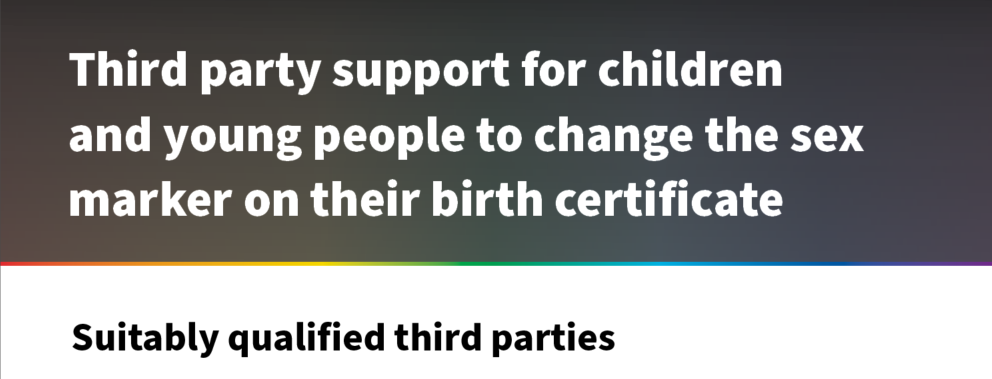Suitably qualified third parties
Supporting applications for children and young people
The self-identification process allows people, including children and young people, to amend the registered sex on their birth certificate.
This process is especially important to transgender, non-binary, takatāpui and intersex people.
Children and young people need a letter of support from a third party to amend the registered sex on their birth certificate.
The role of a third party is to provide independent assurance that the child or young person understands what it means to amend the registered sex on their birth certificate, and it is something the child or young person wants to do. The third party is not assessing if the change is in the best interests of the child or young person, or if they physically conform to their gender.
Questions about third parties
Who can be a third party?
The legislation provides that a third party can be either:
- a registered professional with a current practising certificate from the following list:
- Medical Practitioner registered with the Medical Council of New Zealand
- Nurse or Nurse Practitioner registered with the Nursing Council of New Zealand
- Psychologist registered with the Psychologists Board
- Psychotherapist registered with the Psychotherapists Board
- Registered Social Worker registered under the Social Workers Registration Act 2003
- Qualifying Counsellor with a current practising certificate issued in accordance with—
- the rules (or equivalent) and policies of the New Zealand Christian Counsellors Association; or
- the constitution (or equivalent) and policies of the New Zealand Association of Counsellors Incorporated, OR
- a person who has known the child or young person for 12 months or more.
A third party must also be over the age of 18.
Does a third party have to support a child or young person’s application?
The law does not oblige anyone to provide a letter of support – a person can decline.
Factsheet
